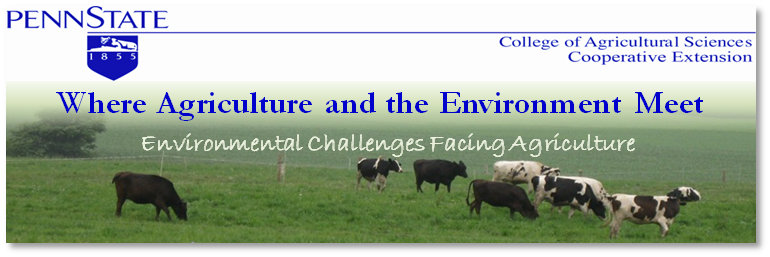 There has been a great deal of attention paid to the water quality of the Chesapeake Bay, but due to the overwhelming amount of information and proposals many folks are understandably confused as to what is really going to happen and what they will be expected to do.
There has been a great deal of attention paid to the water quality of the Chesapeake Bay, but due to the overwhelming amount of information and proposals many folks are understandably confused as to what is really going to happen and what they will be expected to do.Here in Lancaster County, we have been under the gun for decades now, but the new Executive Order and TMDL have upped the anti on what will be expected of farmers and suburbanites in the county. However, what these new regulations might mean and what they might look like in the future is difficult to determine. However, it is clear the stricture water quality regulations will be in place and I'm working with local feed companies to update their farmer clientele on where the regulations stand now and what might happen in the future. Although it isn't possible to answer all the questions I'm getting about this issue, I'm finding the many farmers are eager to gain a better understanding of what these regulations might mean to them.
Farmers in Lancaster County are generally well read and aware of the issues facing due to the attention the county has received in the past, but the attention has been heightened recently with EPA targeting eight watersheds in the county and going door-to-door within those watersheds. This prospect can be very daunting to an unprepared farmer, but hopefully by working with them we can help them be more prepared for these visits. The Lancaster County Conservation District is doing a great job of bridging the gap between local farmers and EPA and I applaud their efforts.
I encourage others to get involved and help educate not just farmers, but the general public about what they will be asked to do. If you have any strategies that are working well for you in the area of watershed education please share.

